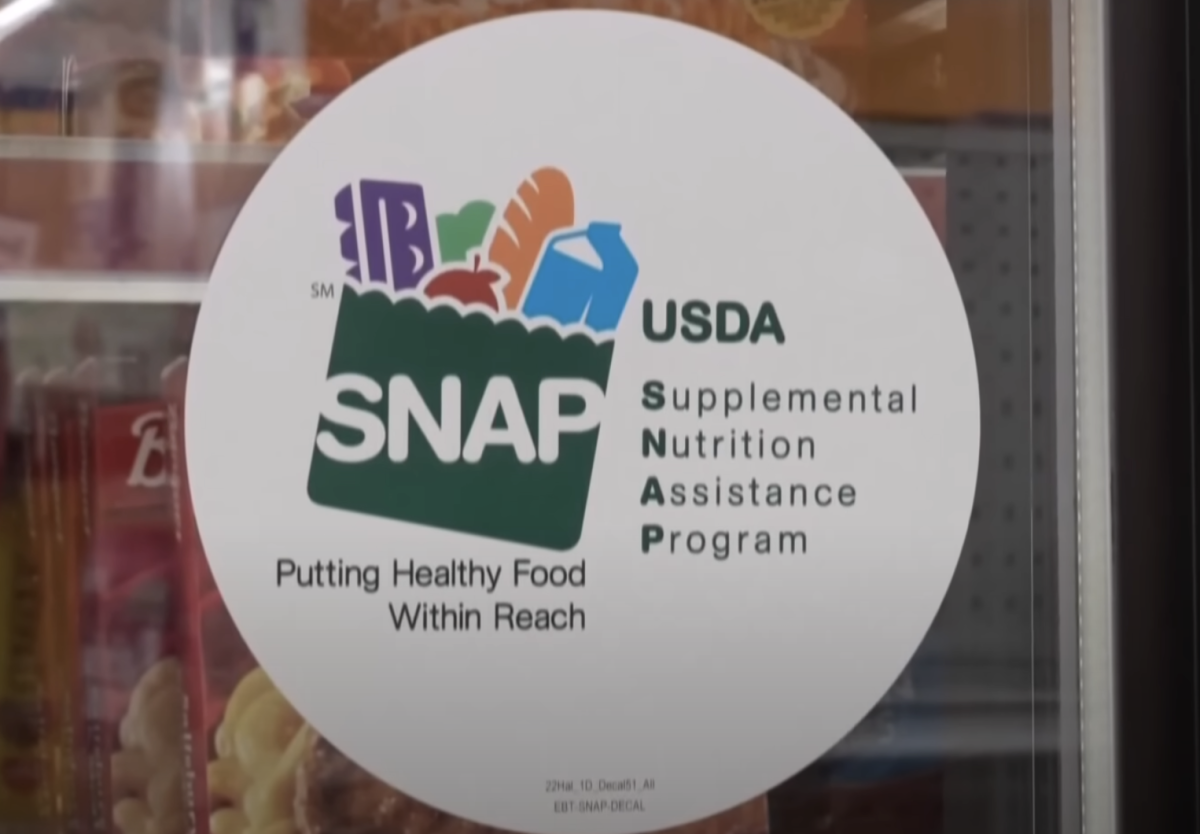
Changes to government benefits are rarely straightforward. The latest update to the Supplemental Nutrition Assistance Program illustrates this well. Starting November 1, new rules will take effect that may provide additional support for some older Americans while creating new challenges for others.
For some recipients, the upcoming changes may bring unexpected benefits, particularly for those aged 60 and older.
However, for many families, veterans, and younger adults, the new rules could result in reduced food assistance compared to previous years.
The silver lining for seniors
The upper age exemption for work requirements has been raised to cover individuals up to age 65, an increase from the previous limit of 59.
This change means Americans aged 60 to 64 who previously had to meet strict work requirements to maintain their food benefits are now exempt.
Approximately 42 million people across the country receive SNAP benefits, which help low- and no-income households afford groceries.
The program has long required able-bodied adults without dependents—known as ABAWDs in government terms—to work or volunteer at least 80 hours a month to continue receiving benefits beyond a three-month period.
"Many older adults face health limitations that restrict the work they can do"
The age adjustment reflects the reality that finding and maintaining employment often becomes more difficult as people get older, even before reaching traditional retirement age.
Also read: What to know about this month’s SNAP benefit changes
The broader picture gets complicated
While the age adjustment benefits some older adults, other provisions of the One Big Beautiful Bill Act (OBBA), passed by Congress earlier this year, introduce new challenges for many recipients.
According to estimates from the Congressional Budget Office, the changes could result in approximately 2.4 million people losing some or all of their benefits.
This represents a significant number of households nationwide who may now face a more complex process for maintaining access to food assistance.
Who loses exemptions
The new rules remove several exemptions that previously allowed certain groups to continue receiving benefits without meeting work requirements:
- Veterans: Previously exempt, now must meet work requirements unless they qualify for disability benefits
- Homeless individuals: No longer automatically exempt from the three-month limit
- Foster care alumni: Young adults who aged out of foster care at 24 or younger lost their exemption
- Parents with older teens: The exemption for caring for a dependent child now applies only to parents or guardians of children under 14, reduced from under 18
This change may affect households in which parents or guardians care for teenagers who continue to require supervision and support.
Understanding the 80-hour requirement
To keep SNAP benefits, affected adults must complete 80 hours monthly through:
• Paid work or volunteering
• Job training programs
• SNAP Employment and Training programs
• A combination of work and training
• Workfare (hours vary by benefit amount)
Also read: When grocery trips raise warning signs: What SNAP recipients should know
State struggles and rural impacts
States are now facing reduced federal support at the same time administrative responsibilities are increasing.
According to the original reporting, states must now cover up to 25% of SNAP costs, compared to the previous model in which the program was fully federally funded.
Each dollar in SNAP benefits is estimated to generate up to $1.80 in local economic activity, meaning reductions in funding can have broader community impacts.
Rural counties already experience higher rates of poverty and food insecurity than the national average, with approximately one in seven rural households relying on SNAP assistance.
Also read: SNAP retailers could see changes as USDA proposes new stocking standards
The women's burden
Research indicates that approximately 2 million additional women will now be subject to work requirements, many of whom live in households with children or other dependents.
Laura Samuel, associate professor at Johns Hopkins School of Nursing, noted that some older adults experience health limitations that can affect their ability to work and expressed concern that the new rules could increase financial strain for certain households.
Did you know?
Did you know?
SNAP benefits have long been recognized as a key component of federal anti-poverty efforts. Each dollar in benefits is estimated to generate economic activity that supports local businesses, farmers, and communities, especially in rural areas where options may be more limited.
Also read: SNAP reductions may impact seniors the most in these 15 states
What this means for your daily life
If you're wondering whether these changes affect you or someone you know, here are the key questions to ask:
Are you exempt? You don't need to worry about work requirements if you're:
- Age 65 or older (the good news for seniors)
- Pregnant
- Unable to work due to physical or mental limitations
- Caring for a child under 14
Could you be affected? The new requirements apply if you're:
- Between ages 18-64
- Physically able to work
- Without dependents (or only caring for children 14-17)
- Don't qualify for disability exemptions
Also read: Lawsuit filed against Trump Administration over SNAP benefit changes
Looking ahead: implementation challenges
States are working to implement the upcoming changes, with some already reporting noticeable administrative impacts.
Pennsylvania has confirmed the November 1 start date, while New Mexico has begun notifying affected residents.
The new documentation requirements may also increase administrative complexity.
Individuals subject to work requirements must verify compliance through pay stubs, employer confirmation, or participation records from approved programs.
For some older adults, especially those with limited access to technology or transportation, these steps may present additional logistical challenges.
What seniors need to know about SNAP changes
- Good news: Age exemption raised from 59 to 65
- Veterans and homeless individuals lose automatic exemptions
- Parents with teens 14-17 now subject to work requirements
- 80 hours monthly work/training requirement for most affected adults
- States implementing new rules November 1st with varying approaches
Also read: New SNAP restrictions? Some groceries could soon be off-limits with food benefits
Getting help and staying informed
Individuals who may be affected by these changes are encouraged to seek information and support as soon as possible.
State agencies are required to help residents understand the new rules and connect them with available job training, volunteer, or work participation programs.
Most states offer SNAP Employment and Training programs that can count toward the 80-hour requirement while also helping participants develop new job skills.
For more details, contact your local social services office or visit your state’s benefits website for guidance on available resources.
The food assistance landscape is evolving as these policy updates take effect.
While some older adults may benefit from expanded exemptions, others could experience adjustments to their eligibility or reporting requirements.
Read next:
- What SNAP changes could mean for your grocery budget—23 governors speak ou
- SNAP benefits hit by massive scam surge—are your funds at risk?
- Could a SNAP benefits error cost your state millions? Here’s what taxpayers need to know
What questions do you have about the recent SNAP changes? Have you or someone in your family been affected by the new work requirements? Share your experiences and insights in the comments below—they can help others better understand how these policies affect communities across the country.
Original Article
https://www.the-sun.com/money/15303108/snap-obba-work-requirements-exemptions-change-november/
SNAP work requirements on the way: Here's who's impacted
Cited text: The upper age exception has been raised to cover those 65 and under, up from 59, while the exemption for caring for a dependent child now applies only...
Excerpt: The upper age exemption has been raised to cover those 65 and under, up from 59
https://www.newsweek.com/new-snap-work-requirements-who-impacted-10809240
SNAP Benefits Deadline of November 1 Issued to States - Newsweek
Cited text: The upper age limit for exemption has been raised to include individuals up to age 65, up from 59.
Excerpt: The upper age exemption has been raised to cover those 65 and under, up from 59
https://www.newsweek.com/snap-benefits-deadline-of-november-1-issued-to-states-10838426
SNAP Benefits Deadline of November 1 Issued to States - Newsweek
Cited text: About 42 million people across the country receive SNAP benefits, which help low- and no-income households afford groceries.
Excerpt: about 42 million people across the country receive SNAP benefits
https://www.newsweek.com/snap-benefits-deadline-of-november-1-issued-to-states-10838426
SNAP Work Requirements | Food and Nutrition Service
Cited text: You can meet the ABAWD work requirement by doing any one of these things: Work at least 80 hours a month.
Excerpt: 80 hours a month
https://www.fns.usda.gov/snap/work-requirements
SNAP Benefits Deadline of November 1 Issued to States - Newsweek
Cited text: Earlier this year, Congress passed the One Big Beautiful Bill Act (OBBBA), which revised Supplemental Nutrition Assistance Program (SNAP) work require...
Excerpt: the One Big Beautiful Bill Act (OBBA), passed by Congress earlier this year
https://www.newsweek.com/snap-benefits-deadline-of-november-1-issued-to-states-10838426
SNAP Changes: Trump Bill Adds New Burdens for Millions of Women, Study Says - Newsweek
Cited text: President Donald Trump's One Big Beautiful Bill Act (OBBA) has introduced sweeping changes to the Supplemental Nutrition Assistance Program (SNAP) and...
Excerpt: the One Big Beautiful Bill Act (OBBA), passed by Congress earlier this year
https://www.newsweek.com/snap-changes-trump-bill-adds-new-burdens-millions-women-study-2105160
SNAP work requirements on the way: Here's who's impacted
Cited text: The Congressional Budget Office estimated in August it could push 2.4 million people from receiving all or some of their benefits.
Excerpt: The Congressional Budget Office estimated it could push 2.4 million people from receiving all or some of their benefits
https://www.newsweek.com/new-snap-work-requirements-who-impacted-10809240
SNAP Benefits Deadline of November 1 Issued to States - Newsweek
Cited text: The exemption for caring for a dependent child now applies only to parents or guardians of children under 14, reduced from under 18.
Excerpt: The exemption for caring for a dependent child now applies only to parents or guardians of children under 14, reduced from under 18
https://www.newsweek.com/snap-benefits-deadline-of-november-1-issued-to-states-10838426
SNAP Benefits Deadline of November 1 Issued to States - Newsweek
Cited text: Every dollar in SNAP benefits generates up to $1.80 in local economic activity.
Excerpt: Every dollar in SNAP benefits generates up to $1.80 in local economic activity
https://www.newsweek.com/snap-benefits-deadline-of-november-1-issued-to-states-10838426
SNAP Benefits Deadline of November 1 Issued to States - Newsweek
Cited text: Rural counties already face higher rates of poverty and food insecurity than the national average, with one in seven rural households relying on SNAP....
Excerpt: Rural counties already face higher rates of poverty and food insecurity than the national average, with one in seven rural households relying on SNAP
https://www.newsweek.com/snap-benefits-deadline-of-november-1-issued-to-states-10838426
SNAP Changes: Trump Bill Adds New Burdens for Millions of Women, Study Says - Newsweek
Cited text: Approximately 2 million more women will be newly subject to these requirements, many living in households with children.
Excerpt: approximately 2 million more women will be newly subject to work requirements, many living in households with children
https://www.newsweek.com/snap-changes-trump-bill-adds-new-burdens-millions-women-study-2105160
SNAP work requirements on the way: Here's who's impacted
Cited text: Laura Samuel, associate professor at Johns Hopkins School of Nursing, told Newsweek that "many older adults face health limitations that restrict the ...
Excerpt: Laura Samuel, associate professor at Johns Hopkins School of Nursing, explained that "many older adults face health limitations that restrict the work they can do" and warned that "these rules don't reflect people's realities and may push…
https://www.newsweek.com/new-snap-work-requirements-who-impacted-10809240
SNAP work requirements on the way: Here's who's impacted
Cited text: These rules don’t reflect people’s realities and may push families deeper into food insecurity."
Excerpt: Laura Samuel, associate professor at Johns Hopkins School of Nursing, explained that "many older adults face health limitations that restrict the work they can do" and warned that "these rules don't reflect people's realities and may push…
https://www.newsweek.com/new-snap-work-requirements-who-impacted-10809240






